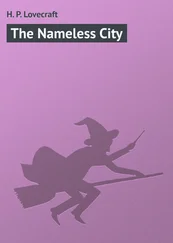Maurus Jokai - The Nameless Castle
Здесь есть возможность читать онлайн «Maurus Jokai - The Nameless Castle» весь текст электронной книги совершенно бесплатно (целиком полную версию без сокращений). В некоторых случаях можно слушать аудио, скачать через торрент в формате fb2 и присутствует краткое содержание. Город: New York, Год выпуска: 1898, Издательство: Doubleday, Page & Company, Жанр: Историческая проза, на английском языке. Описание произведения, (предисловие) а так же отзывы посетителей доступны на портале библиотеки ЛибКат.
- Название:The Nameless Castle
- Автор:
- Издательство:Doubleday, Page & Company
- Жанр:
- Год:1898
- Город:New York
- ISBN:нет данных
- Рейтинг книги:4 / 5. Голосов: 1
-
Избранное:Добавить в избранное
- Отзывы:
-
Ваша оценка:
- 80
- 1
- 2
- 3
- 4
- 5
The Nameless Castle: краткое содержание, описание и аннотация
Предлагаем к чтению аннотацию, описание, краткое содержание или предисловие (зависит от того, что написал сам автор книги «The Nameless Castle»). Если вы не нашли необходимую информацию о книге — напишите в комментариях, мы постараемся отыскать её.
The Nameless Castle — читать онлайн бесплатно полную книгу (весь текст) целиком
Ниже представлен текст книги, разбитый по страницам. Система сохранения места последней прочитанной страницы, позволяет с удобством читать онлайн бесплатно книгу «The Nameless Castle», без необходимости каждый раз заново искать на чём Вы остановились. Поставьте закладку, и сможете в любой момент перейти на страницу, на которой закончили чтение.
Интервал:
Закладка:
One day Herr Mercatoris sent to the castle a brochure on which he had proudly written, “With the compliments of the author.” The booklet was written in Latin, and was an account of the natural wonder which is, to this day, reckoned among the numerous memorable peculiarities of Lake Neusiedl,—a human being that lived in the water and ate live fishes.
A little boy who had lost both parents, and had no one to care for him, had strayed into the morass of the Hansag, and, living there among the wild animals, had become a wild animal himself, an inhabitant of the water like the otters, a dumb creature from whose lips issued no human sound.
The decade of years he had existed in the water had changed his skin to a thick hide covered with a heavy growth of hair. The phenomenon would doubtless be accepted by many as a convincing proof that the human being was really evolved from the wild animal.
Accompanying the description was an engraved portrait of the natural wonder.
The new owner of Fertöszeg, Baroness Katharina Landsknechtsschild, had been told that a strange creature was frightening the village children who bathed in the lake. She had given orders to some fishermen to catch the monster, which they had been fortunate enough to do while fishing for sturgeon. The boy-fish had been taken to the manor, where he had been properly clothed, and placed in the care of a servant whose task it was to teach the poor lad to speak, and walk upright instead of on all fours, as had been his habit. Success had so far attended the efforts to tame the wild boy that he would eat bread and keep on his clothes. He had also learned to say “Ham-ham” when he wanted something to eat; and he had been taught to turn the spit in the kitchen. The kind-hearted baroness was sparing no pains to restore the lad to his original condition. No one was allowed to strike or abuse him in any way.
This brochure had a twofold effect upon the count. He became convinced that the monster which had frightened Marie was not an assassin hired by her enemies, not an expert diver, but a natural abnormity that had acted innocently when he pursued the swimming maid. Second, the count could not help but reproach himself when he remembered that he would have destroyed the irresponsible creature whom his neighbor was endeavoring to transform again into a human being.
How much nobler was this woman’s heart than his own! His fair neighbor began to interest him.
He took the pamphlet to Marie, who shuddered when her eyes fell on the engraving.
“The creature is really a harmless human being, Marie, and I am sorry we became so excited over it. Our neighbor, the lovely baroness, is trying to restore the poor lad to his original condition. Next summer you will not need to be afraid to venture into the lake again.”
The little maid gazed thoughtfully into Ludwig’s eyes for several moments; evidently she was pondering over something.
There had risen in her mind a suspicion that Ludwig himself had written the pamphlet, and had had the monster’s portrait engraved, in order to quiet her fears and restore her confidence in the water.
“Will you take me sometime to visit the baroness?” she asked suddenly.
“And why?” inquired Ludwig, in turn, rising from his seat.
“That I, too, may see the wonderful improvement in the monster.”
“No,” he returned shortly, and taking up the pamphlet, he quitted the room. “No!”
“But why ‘No’?”
PART IV
SATAN LACZI
CHAPTER I
Count Vavel (thus he was addressed on his letters) had arranged an observatory in the tower of the Nameless Castle. Here was his telescope, by the aid of which he viewed the heavens by night, and by day observed the doings of his fellow-men. He noticed everything that went on about him. He peered into the neighboring farm-yards and cottages, was a spectator of the community’s disputes as well as its diversions. Of late, the chief object of his telescopic observations during the day were the doings at the neighboring manor. He was the “Lion-head” and the “Council of Ten” in one person. The question was, whether the new mistress of the manor, the unmarried baroness, should “cross the Bridge of Sighs”? His telescope told him that this woman was young and very fair; and it told him also that she lived a very secluded life. She never went beyond the village, nor did she receive any visitors.
In the neighborhood of Neusiedl Lake one village was joined to another, and these were populated by pleasure-loving and sociable families of distinction. It was therefore a difficult matter for the well-born man or woman who took up a residence in the neighborhood to avoid the jovial sociability which reigned in those aristocratic circles.
Count Vavel himself had been overwhelmed with hospitable attentions the first year of his occupancy of the Nameless Castle; but his refusals to accept the numerous invitations had been so decided that they were not repeated.
He frequently saw through his telescope the same four-horse equipages which had once stopped in front of his own gates drive into the court at the manor; and he recognized in the occupants the same jovial blades, the eligible young nobles, who had honored him with their visits. He noticed, too, that none of the visitors spent a night at the manor. Very often the baroness did not leave her room when a caller came; it may have been that she had refused to receive him on the plea of illness. During the winter Count Vavel frequently saw his fair neighbor skating on the frozen cove; while a servant propelled her companion over the ice in a chair-sledge.
On these occasions the count would admire the baroness’s graceful figure, her intrepid movements, and her beautiful face, which was flushed with the exercise and by the cutting wind.
But what pleased him most of all was that the baroness never once during her skating exercises cast an inquiring glance toward the windows of the Nameless Castle—not even when she came quite close to it.
On Christmas eve she, like Count Vavel, arranged a Christmas tree for the village children. The little ones hastened from the manor to the castle, and repeated wonderful tales of the gifts they had received from the baroness’s own hands.
Every Sunday the count saw the lady from the manor take her way to church, on foot if the roads were good; and on her homeward way he could see her distribute alms among the beggars who were ranged along either side of the road. This the count did not approve. He, too, gave plenteously to the poor, but through the village pastor, and only to those needy ones who were too modest to beg openly. The street beggars he repulsed with great harshness—with one exception. This was a one-legged man, who had lost his limb at Marengo, and who stationed himself regularly beside the cross at the end of the village. Here he would stand, leaning on his crutches, and the count, in driving past, would always drop a coin into the maimed warrior’s hat.
One day when the carriage drew near the cross, Count Vavel saw the old soldier, as usual, but without his crutches. Instead, he leaned on a walking-stick, and stood on two legs.
The count stopped the carriage, and asked: “Are not you the one-legged soldier?”
“I am, your lordship,” replied the man; “but that angel, the baroness, has had a wooden leg made for me,—I could dance with it if I wished,—so I don’t need to beg any more, for I can cut wood now, and thus earn my living. May God bless her who has done this for me!”
The count was dissatisfied with himself. This woman understood everything better than he did. He felt that she was his rival, and from this feeling sprang the desire to compete with her.
An opportunity very soon offered. One day the count received from the reverend Herr Mercatoris a gracefully worded appeal for charity. The new owner of Fertöszeg had interested herself in the fate of the destitute children whose fathers had gone to the war, and, in order to render their condition more comfortable, had undertaken to found a home for them. She had already given the necessary buildings, and had furnished them. She now applied to the sympathies of the well-to-do residents of the county for assistance to educate the children. In addition to food and shelter, they required teachers. Such sums as were necessary for this purpose must be raised by a general subscription from the charitably inclined.
Читать дальшеИнтервал:
Закладка:
Похожие книги на «The Nameless Castle»
Представляем Вашему вниманию похожие книги на «The Nameless Castle» списком для выбора. Мы отобрали схожую по названию и смыслу литературу в надежде предоставить читателям больше вариантов отыскать новые, интересные, ещё непрочитанные произведения.
Обсуждение, отзывы о книге «The Nameless Castle» и просто собственные мнения читателей. Оставьте ваши комментарии, напишите, что Вы думаете о произведении, его смысле или главных героях. Укажите что конкретно понравилось, а что нет, и почему Вы так считаете.












